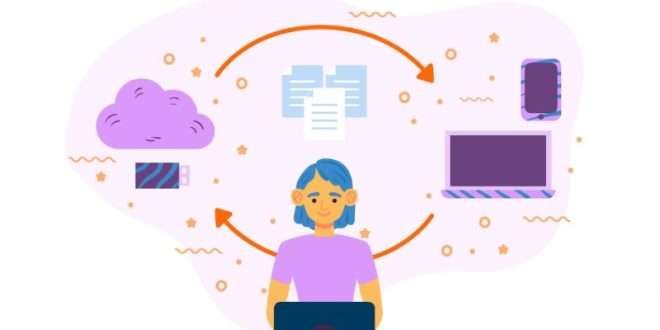In the ever-evolving landscape of web technology, the emergence of decentralized applications (DApps) has taken center stage. These revolutionary software ecosystems, often referred to as “Unborn Softwares Ecosystems,” are transforming the way we interact with the internet and the services it offers. In this comprehensive blog, we delve into the realm of decentralized apps, exploring their potential, benefits, challenges, and the future they hold. Welcome to the interconnected world of DApps!
Understanding Decentralized Apps (DApps)
Decentralized apps, or DApps, are a groundbreaking innovation in the field of web development technologies. Unlike traditional applications that rely on a centralized server for data and operations, DApps operate on decentralized networks such as blockchain. This decentralization ensures greater transparency, security, and resilience, making them less vulnerable to single-point failures and hacks.
The Core Characteristics of DApps
To be classified as a DApp, a software ecosystem must exhibit specific core characteristics, including:
Decentralization:
The application’s backend code must be decentralized, running on a peer-to-peer network.
Open Source:
DApps are usually open source, fostering collaboration and community-driven development.
Consensus Mechanism:
They employ a consensus mechanism like Proof of Work (PoW) or Proof of Stake (PoS) to validate transactions and secure the network.
Tokenization:
DApps often have their native digital tokens, enabling users to participate in the ecosystem and incentivizing their engagement.
Advantages of Decentralized Apps
The adoption of DApps has been driven by their numerous advantages:
Enhanced Security:
Decentralization reduces the risk of hacking and unauthorized access.
Data Privacy:
Users have greater control over their data, reducing the risk of data breaches.
Censorship Resistance:
DApps cannot be easily shut down or censored, ensuring freedom of expression and information sharing.
Global Accessibility:
Anyone with an internet connection can access DApps, regardless of their location or socio-economic background.
The Evolution of DApp Development
Over the years, DApp development has witnessed remarkable advancements. Developers are leveraging advanced web technologies to create robust and user-friendly DApps. Some of the most commonly used web technologies in DApp development include:
Web3.js:
This JavaScript library enables interaction with the Ethereum blockchain, facilitating seamless DApp integration.
IPFS (InterPlanetary File System):
IPFS is a distributed file system used to store and retrieve data in DApps, ensuring content availability and resilience.
Smart Contracts:
Smart contracts, deployed on blockchain platforms like Ethereum, facilitate automated and trustless execution of agreements.
Web Hosting and DApps
DApps require a unique hosting infrastructure to ensure their availability and reliability. Traditional web hosting services may not be suitable for DApps due to their decentralized nature. Instead, decentralized hosting solutions like IPFS and blockchain-based hosting platforms are gaining popularity for hosting DApps securely and efficiently.
The Role of Cloud in DApp Adoption
The cloud has played a pivotal role in the growth of DApps. Cloud computing services offer the scalability and flexibility required to handle the increasing user base of DApps. Additionally, cloud-based storage solutions enhance data availability and accessibility for DApp users worldwide.
The Future of DApps
As the blockchain and web technologies continue to advance, the future of DApps looks promising. The potential applications of DApps span across various industries, including finance, supply chain, healthcare, and more. With ongoing research and development, DApps are expected to become more scalable, user-friendly, and widely adopted.
Final Words
In conclusion, Unborn Softwares Ecosystems, commonly known as decentralized applications (DApps), are a transformative force in the web technology landscape. With their decentralized nature, enhanced security, and global accessibility, DApps are set to revolutionize various industries. As the world embraces these innovative ecosystems, we can expect a future where decentralized apps play a pivotal role in shaping the digital era.
Commonly Asked Questions
Q1: What distinguishes DApps from traditional apps?
A1: DApps differ from traditional apps by operating on decentralized networks like blockchain, offering enhanced security and data privacy.
Q2: Are DApps more secure than traditional apps?
A2: Yes, DApps are considered more secure due to their decentralized architecture, reducing the risk of single-point failures and hacks.
Q3: How can developers get started with DApp development?
A3: Developers can begin by learning web3.js and exploring blockchain platforms like Ethereum to deploy smart contracts for DApps.
Q4: Can DApps be shut down or censored?
A4: No, the decentralized nature of DApps makes them resistant to shutdowns or censorship.
Q5: What role does cloud computing play in the DApp ecosystem?
A5: Cloud computing provides scalability and data accessibility, supporting the growth of DApps and their user base.
 webfily
webfily



